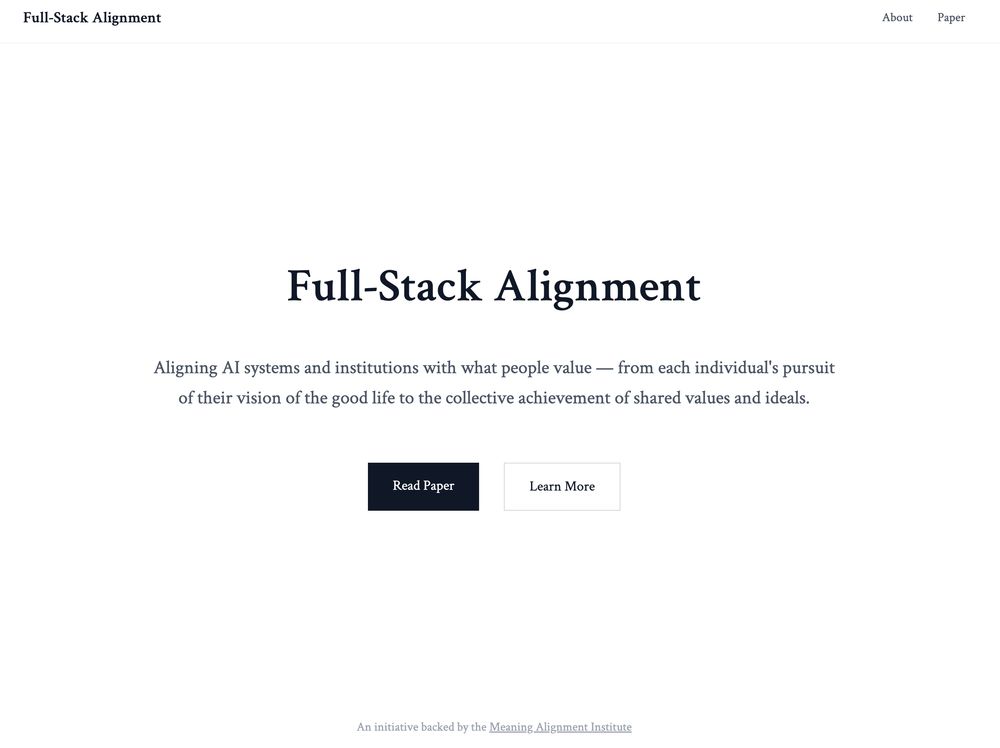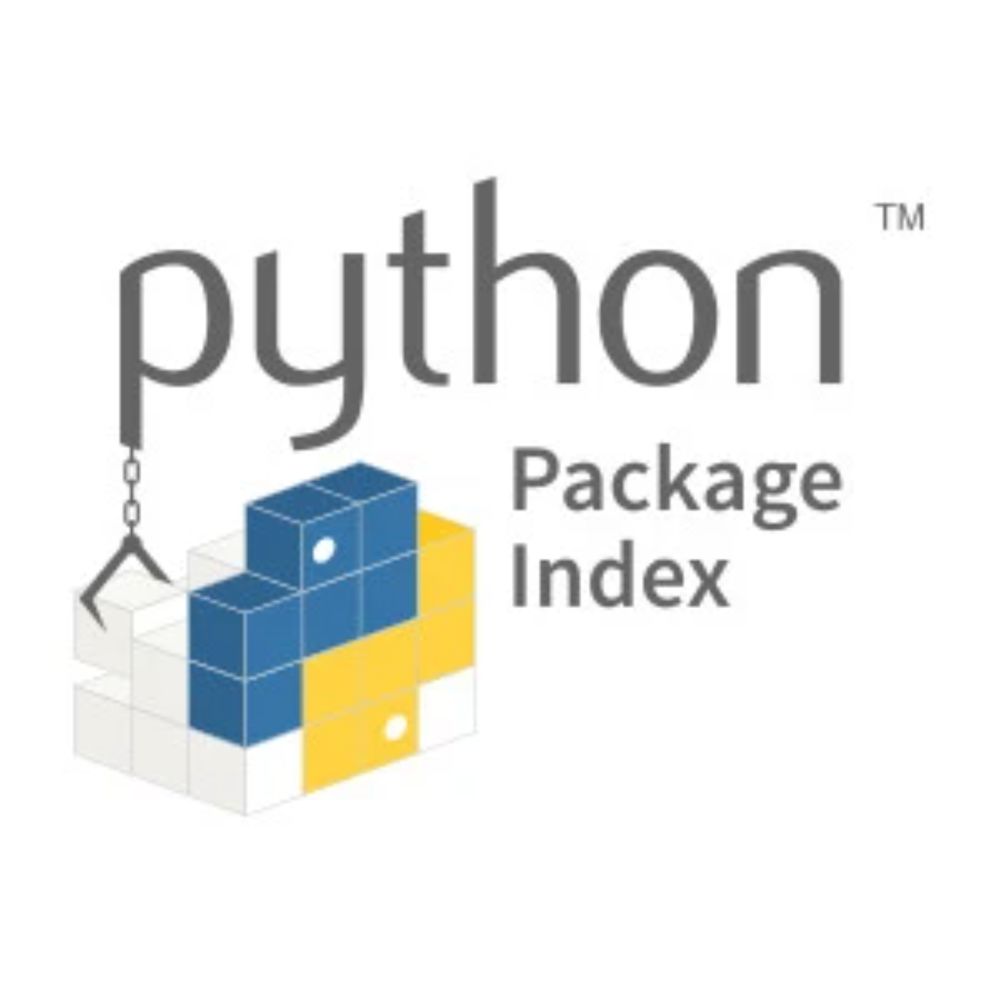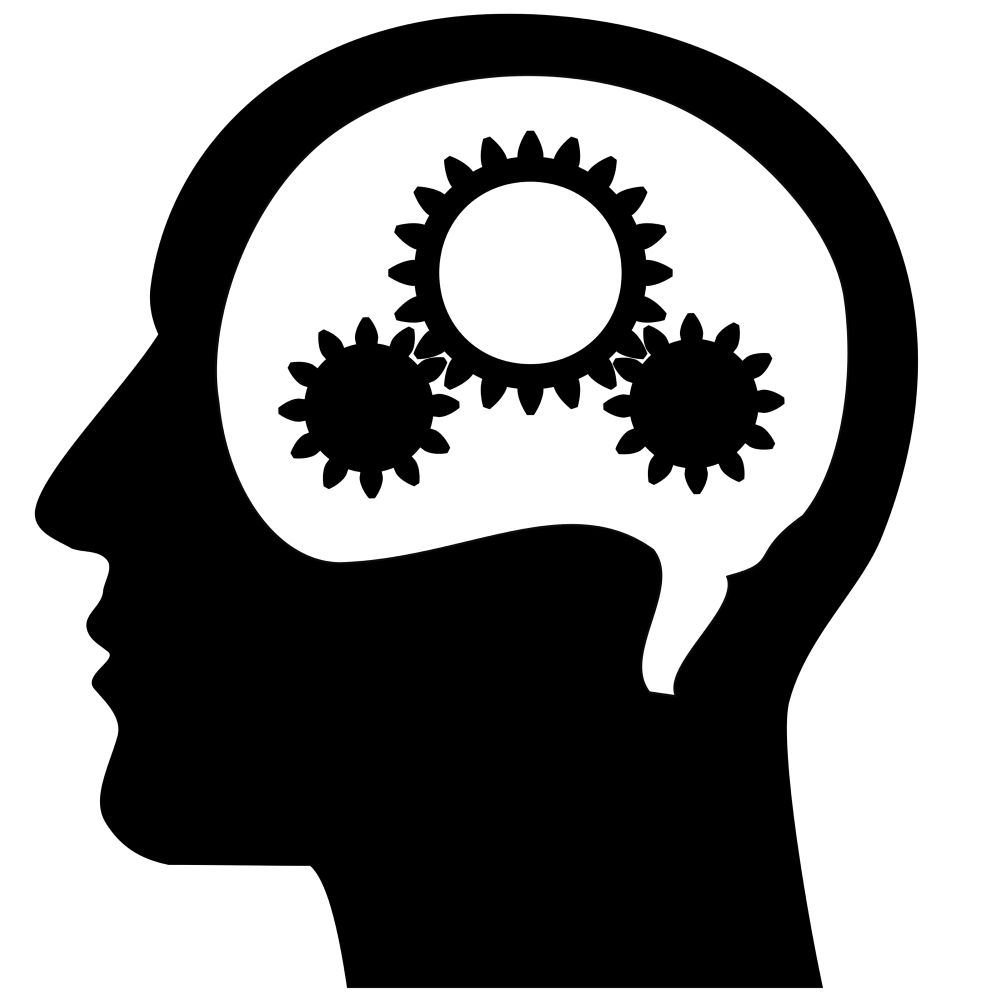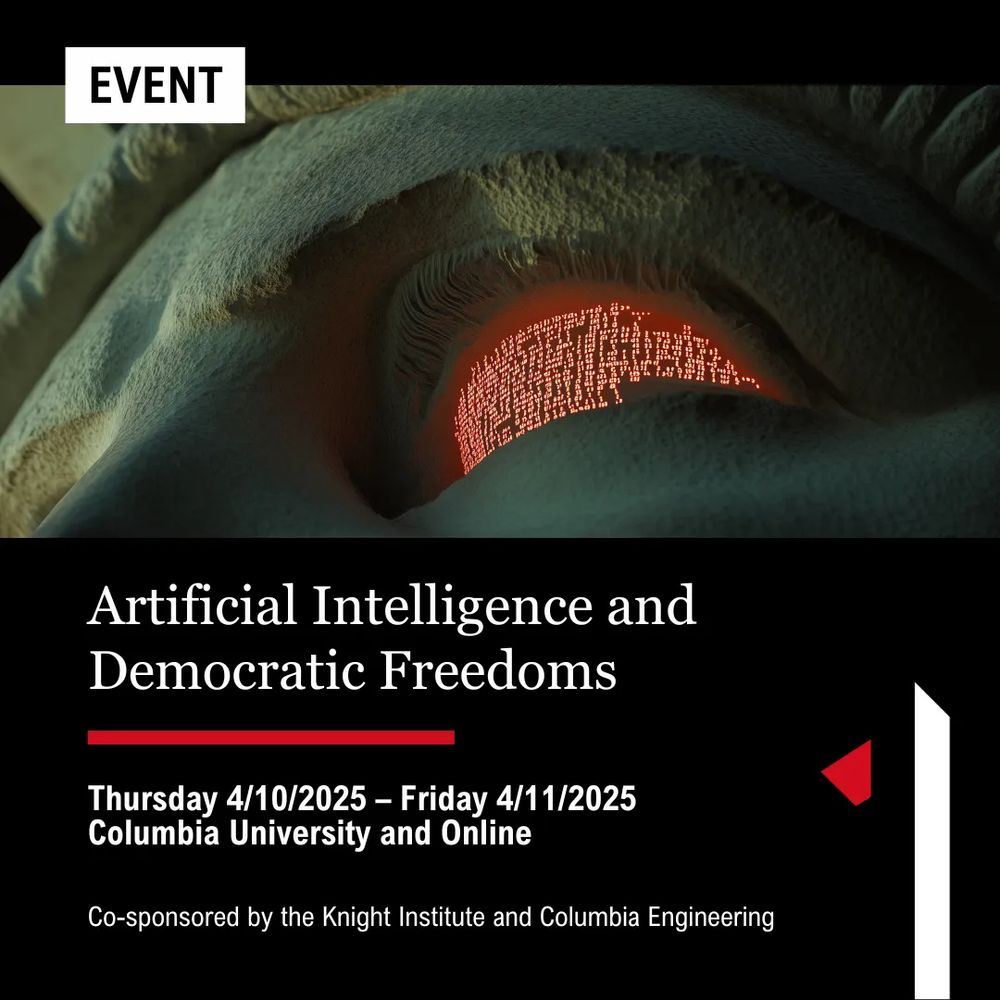Sydney Levine
@sydneylevine.bsky.social
360 followers
180 following
22 posts
Cognitive scientist working at the intersection of moral cognition and AI safety. Currently: Google Deepmind. Soon: Assistant Prof at NYU Psychology. More at sites.google.com/site/sydneymlevine.
Posts
Media
Videos
Starter Packs
Pinned
Sydney Levine
@sydneylevine.bsky.social
· Jun 25
Reposted by Sydney Levine
Sydney Levine
@sydneylevine.bsky.social
· Jul 11
Reposted by Sydney Levine
Reposted by Sydney Levine
Sydney Levine
@sydneylevine.bsky.social
· Jun 25
Sydney Levine
@sydneylevine.bsky.social
· Jun 25
Sydney Levine
@sydneylevine.bsky.social
· Jun 25
Sydney Levine
@sydneylevine.bsky.social
· Jun 25
Sydney Levine
@sydneylevine.bsky.social
· Jun 25
Reposted by Sydney Levine
Reposted by Sydney Levine
Reposted by Sydney Levine
Sydney Levine
@sydneylevine.bsky.social
· Feb 12








